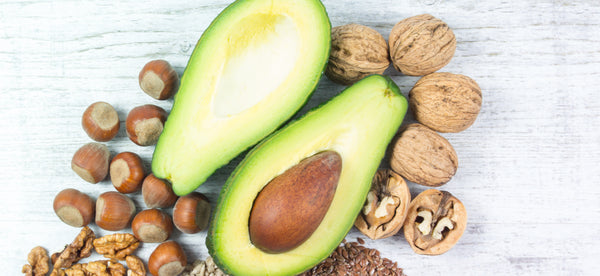


When we think of "vitamins," we know they're super-important for health. But vitamin D is special.
It's difficult to get enough vitamin D; vitamin D is, therefore, a very common deficiency. So, let's talk about how much of this critical fat-soluble vitamin we need, and how you can get enough. The three ways to vitamin D are exposure to the sun, consuming vitamin D containing food, and through supplements.
Vitamin D helps us absorb calcium from our food and acts like a hormone to help us build strong bones. Vitamin D can also help with immune function, cellular growth, and help to prevent mood imbalances such as depression and seasonal affective disorder.
Not getting enough vitamin D can lead to bone diseases like osteomalacia. Inadequate vitamin D can also increase your risk of heart disease, autoimmune diseases, certain cancers, and even death. The "official" minimum amount of vitamin D to strive for each day is merely 400-600 IU. Many experts think that this is not nearly enough for optimal health.
To ensure you get adequate amounts of vitamin D, you can implement any combination of the three vitamin D sources mentioned above on a weekly basis.
Your skin makes vitamin D when it's exposed to the sun; that's why it's referred to as the "sunshine vitamin." How much vitamin D your skin makes depends on many things. Location, season, clouds, clothing, all affect the amount of vitamin D your skin can produce from the sun. One standard recommendation is to get about 5–30 minutes of sun exposure between 10:00 a.m. - 3:00 p.m. to the face, arms, legs, or back. This should be done without sunscreen, at least twice a week. Of course, we should always avoid sunburns. And, in some locations (and seasons of the year) it's not easy to get sun exposure. So, how can we get enough vitamin D in other ways?
Vitamin D is naturally found in fatty fish, liver, and egg yolks. Some mushrooms make vitamin D when they're exposed to the sun. Some foods are "fortified" (which means vitamin D has been added) with vitamin D. These include milk, some orange juices, breakfast cereals, and yogurt. It will say on the label how much vitamin D has been added per serving.
Because vitamin D is fat-soluble, you can increase absorption of it from your food if you eat it with some healthy fat. Between sun exposure and food, it still may be difficult to get even the minimum of 400 IU of vitamin D each day; this is why vitamin D supplements are quite popular.
But before you take vitamin D containing supplements, make sure you check that it won't interact with other supplements or medications you may be taking. Always read your labels, and ask a healthcare professional for advice.
Do not take more than the suggested dosage on the label of any vitamin D supplement, except under medical care.
The maximum amount recommended (for the general population) is 4,000 IU/day. Too much vitamin D can raise your blood levels of calcium (to an unsafe level), and this can affect your heart and kidneys.
The best thing, if you're concerned, is to ask your healthcare professional to do a blood test and make a recommendation about how much vitamin in supplement form is right for you. Your healthcare practitioner may recommend higher amounts of vitamin D supplementation for a short time while under their care.
 NUTRITION
NUTRITION
 RECIPES: VEGAN OTHERS
RECIPES: VEGAN OTHERS
 NUTRITION
NUTRITION
Sign up today to receive weekly Beauty, Nutrition and Lifestyle tips, exclusive offers, and 10% off your first purchase.
Our beauty and wellness brand offers support, services and products to help you become WELL WITHIN your skin, mind and body.
Sign up today and receive your special Friends and Family 20% off your first purchase, valid until May 31, 2017.
Stay Ever Well,
Lynne + Renee
Co-founders
Thank you for signing up today to receive weekly Beauty, Nutrition and Lifestyle tips, exclusive offers and your special Friends and Family 20% off your first purchase, valid until May 31, 2017.
Stay Ever Well,
Lynne + Renee
Sign up today to receive weekly Beauty, Nutrition and Lifestyle tips, exclusive offers, and 10% off your first purchase.
Leave a comment
Comments will be reviewed prior to posting.